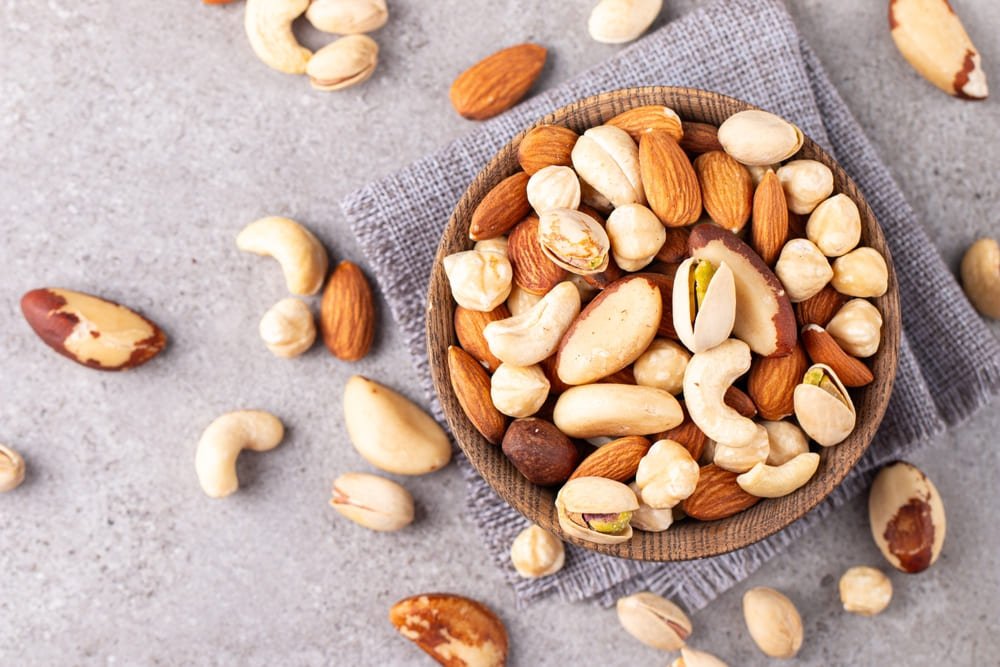The Secret Behind Sustained Athletic Performance
Athletes are constantly pushing their bodies to the limit. Whether it’s strength training, long-distance running, or high-intensity sports, maintaining energy, strength, and endurance is essential. While supplements and energy drinks are often used, the most effective and natural performance enhancers are often overlooked—dry fruits.
Packed with essential vitamins, minerals, antioxidants, and healthy fats, dry fruits provide athletes with the fuel they need for energy, recovery, and long-term performance. They’re small, easy to digest, and loaded with natural energy—making them a perfect part of any athlete’s daily nutrition plan.
In this article, we’ll explore how dry fruits benefit athletes, improve recovery, and keep the body performing at its peak.
The Nutritional Powerhouse: Why Dry Fruits Deserve a Place in an Athlete’s Diet
Concentrated Nutrition in Every Bite
Unlike fresh fruits, dry fruits are dehydrated—meaning most of their water content is removed, leaving behind concentrated nutrients. This makes them rich sources of energy, fiber, and essential minerals like potassium, iron, magnesium, and calcium.
Athletes often need more calories and nutrients than the average person. A small handful of dry fruits can deliver a quick energy boost, replenish nutrients lost through sweat, and support muscle repair.
Natural Energy for Training and Recovery
Dry fruits are packed with natural sugars like glucose and fructose, which provide immediate energy. This makes them ideal pre- and post-workout snacks. For instance, eating dates or raisins before exercise can boost endurance, while almonds and walnuts afterward help with recovery and muscle growth.
Because they’re natural and free from artificial ingredients, dry fruits are a clean and efficient energy source for any athlete striving for peak performance.
Key Benefits of Dry Fruits for Athletes
1. Sustained Energy Release
Athletes need steady energy throughout their performance. Dry fruits provide complex carbohydrates and natural sugars that release energy slowly, preventing sudden spikes or drops in blood sugar.
Raisins, dates, and figs are especially helpful for maintaining energy levels during long training sessions or competitions. They keep your muscles fueled and your stamina high.
2. Faster Muscle Recovery
Post-workout recovery is crucial for athletes, and dry fruits play a big role in that process. Almonds, cashews, and pistachios are rich in protein and magnesium, both essential for repairing muscle tissue and reducing soreness.
Additionally, antioxidants in walnuts and apricots help reduce inflammation and oxidative stress, promoting faster recovery after intense physical activity.
3. Boosting Immunity and Reducing Fatigue
Frequent training can sometimes weaken the immune system, making athletes more vulnerable to illness. Dry fruits like almonds, figs, and prunes are loaded with vitamins A, C, and E—natural antioxidants that strengthen immunity.
They also supply iron, which prevents fatigue by improving oxygen delivery to muscles and tissues. This keeps athletes energetic and resilient, even after demanding workouts.
The Best Dry Fruits for Athletes
Almonds – The Ultimate Energy Snack
Almonds are high in healthy fats, protein, and vitamin E. They help maintain muscle health and provide sustained energy. Eating a few almonds before training can improve endurance, while post-workout consumption helps in recovery.
Their magnesium content also prevents muscle cramps—a common issue for endurance athletes.
Dates – The Quick Energy Charger
Dates are one of the best dry fruits for instant energy. They contain simple sugars like glucose and fructose, which are easily absorbed by the body. Eating dates before workouts provides a natural energy kick without caffeine or artificial additives.
They also contain potassium and antioxidants that help reduce muscle fatigue.
Raisins – The Natural Electrolyte Source
Raisins are small but powerful. They’re packed with potassium, iron, and magnesium, making them ideal for replenishing electrolytes lost during intense physical activity.
A handful of raisins can also aid digestion and prevent dehydration, keeping athletes light and active during long sessions.
Walnuts – The Brain and Body Fuel
Walnuts are rich in omega-3 fatty acids, which help reduce inflammation and support joint health. This makes them especially beneficial for athletes involved in high-impact sports.
Their high calorie and protein content make them a valuable addition to smoothies, salads, or as an on-the-go snack.
Figs – The Fiber-Rich Booster
Figs provide both quick and sustained energy thanks to their natural sugars and fiber content. They also improve digestion, ensuring nutrients are absorbed efficiently—a must for athletes with high-calorie diets.
Their calcium and potassium content supports strong bones and reduces muscle tension.
How Dry Fruits Support Athletic Goals
Enhancing Endurance and Strength
For athletes, endurance and strength are everything. Dry fruits like almonds, walnuts, and raisins enhance both by delivering high-quality calories and nutrients that fuel muscle contraction and repair.
Regular consumption improves stamina and helps athletes maintain focus and performance even under pressure.
Supporting Hydration and Electrolyte Balance
When athletes sweat, they lose electrolytes such as sodium, potassium, and magnesium. Dry fruits naturally replenish these essential minerals. For instance, raisins and apricots are excellent for maintaining electrolyte balance and preventing cramps.
Combining dry fruits with water or sports drinks enhances hydration and helps sustain energy during long workouts or competitions.
The Best Ways to Include Dry Fruits in an Athlete’s Diet
1. Pre-Workout Energy Boost
A handful of dry fruits like dates, raisins, or almonds 30 minutes before training can provide the energy needed for peak performance. Their quick-digesting carbohydrates ensure muscles are ready to perform.
You can also make a quick snack mix by combining almonds, cashews, and dried apricots for a convenient pre-training bite.
2. Post-Workout Recovery Snack
After workouts, the body needs protein and carbohydrates for recovery. Dry fruits like figs, walnuts, and pistachios can be mixed with yogurt or smoothies to speed up muscle repair and restore energy levels.
Adding them to milk or oats creates a perfect recovery meal packed with nutrients.
3. Daily Meals and Smoothies
Incorporate dry fruits into breakfast bowls, oatmeal, or protein shakes. They add texture, flavor, and extra nutrition to everyday meals. You can also sprinkle chopped dry fruits on salads, cereal, or desserts for a healthy twist.
Athletes who are constantly on the go can carry trail mixes made from dry fruits and seeds for easy snacking between training sessions.
Common Mistakes to Avoid
Overeating Dry Fruits
While dry fruits are healthy, they’re also calorie-dense. Overeating can lead to excess calorie intake, which might affect body composition goals. Athletes should consume them in moderation—around 30–50 grams daily, depending on activity levels.
Choosing the Wrong Varieties
Some commercial dry fruits are coated with sugar or preservatives. These reduce their health benefits and can cause energy crashes. Always choose natural, unsweetened, and unprocessed varieties for the best results.
Ignoring Hydration
Because dry fruits have low water content, they should be paired with adequate hydration. Drinking water or smoothies along with dry fruits helps improve digestion and nutrient absorption.
Lifestyle Tips to Maximize the Benefits
Combine Dry Fruits with Protein-Rich Foods
Pairing dry fruits with foods like Greek yogurt, cottage cheese, or nut butter enhances their benefits. This combination balances energy and muscle-repair nutrients.
Maintain Consistency
The benefits of dry fruits build over time. Including them regularly in your diet ensures your body gets a steady supply of essential nutrients for endurance and recovery.
Listen to Your Body
Every athlete’s body responds differently. Adjust your dry fruit intake based on your energy needs, training intensity, and recovery time.
Conclusion: Nature’s Perfect Fuel for Athletes
In the quest for strength, stamina, and performance, athletes often turn to artificial supplements and energy drinks. But the truth is, nature already provides everything the body needs in dry fruits.
From quick energy to faster recovery, better immunity, and improved endurance, dry fruits offer a complete package for athletic nutrition. They’re convenient, natural, and free from chemicals—making them a perfect choice for daily consumption.







